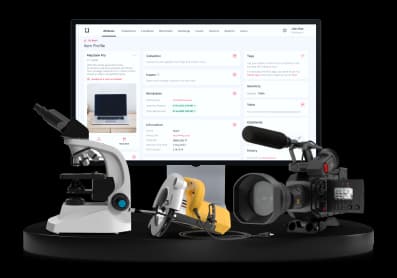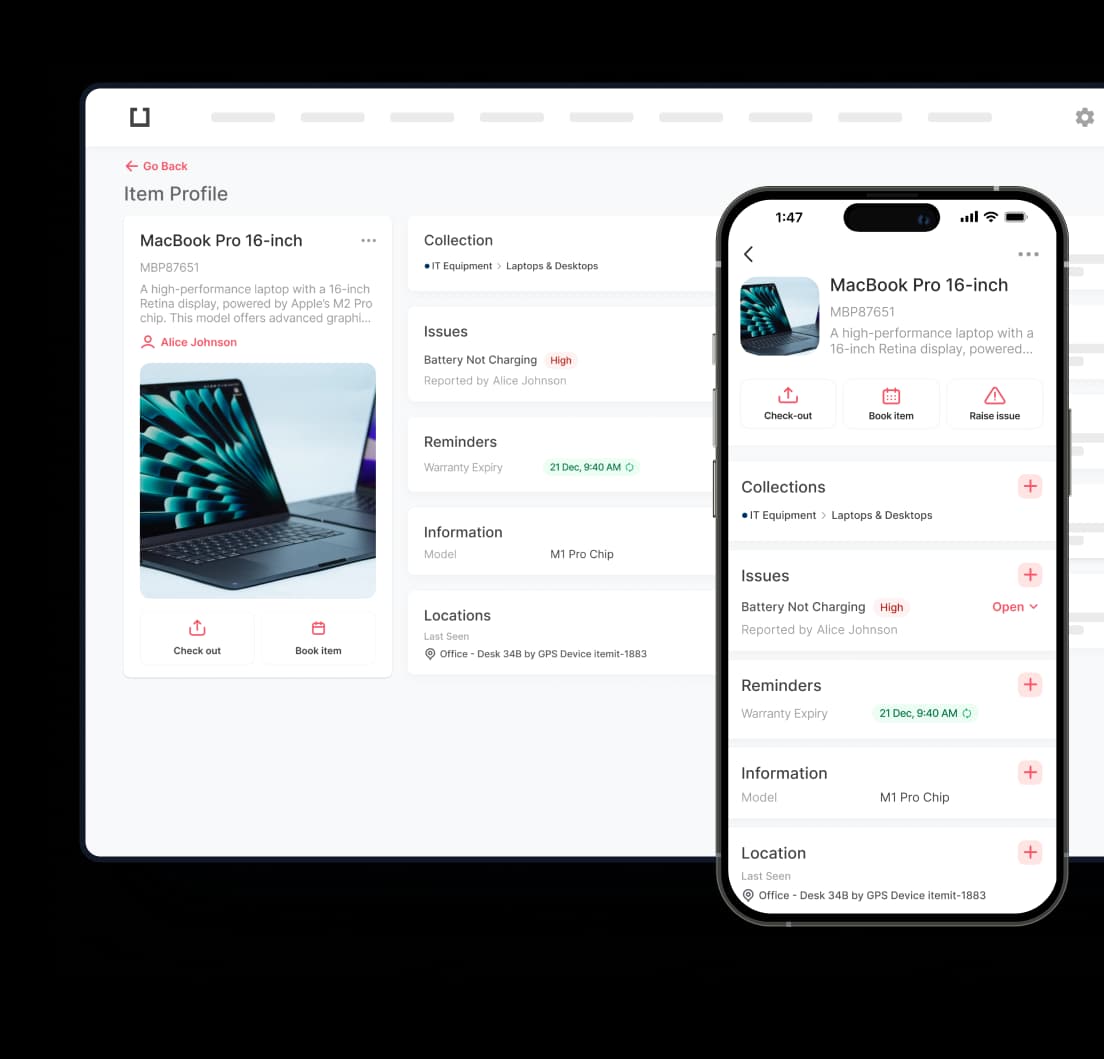What is Ghost Inventory?
Beyond physical assets, there is another question: What is ghost inventory? Simply put, ghost inventory definition refers to items that appear in your inventory records but don't actually exist in your physical stock.
It manifests through various scenarios: merchandise lost to theft, damaged goods never recorded as waste, items miscounted during stock checks, or products stuck in transit yet marked as received. In retail specifically, ghost retail inventory creates particularly troublesome situations when customers attempt to purchase items shown as available in the system but physically absent from shelves.
Much like ghost assets, ghost inventory distorts the true financial picture of a business. The parallels between these two issues highlight the need for comprehensive tracking solutions that address both fixed assets and inventory items within a unified framework.
To build comprehensive asset management knowledge, consider learning more about what is ghost assets alongside inventory management principles.
Why Ghost Inventory is a Problem
The repercussions of ghost inventory extend far beyond minor bookkeeping nuisances. For starters, financial inaccuracies snowball across multiple business functions. Stock valuations become unreliable, leading to flawed financial statements. Companies might allocate funds to replace supposedly missing inventory that simply wasn't properly tracked. Tax liabilities get miscalculated, potentially triggering compliance issues during audits.
Operationally, ghost inventory creates a logistical nightmare. Staff waste precious time searching for non-existent items. Production schedules falter when materials expected to be available turn up missing. Customer promises go unfulfilled when orders can't be completed due to phantom stock.
Perhaps most damaging, ghost inventory undermines strategic planning. Purchasing decisions based on inaccurate stock levels lead to either costly overstocking or profit-killing stockouts. Forecasting becomes an exercise in guesswork rather than data-driven analysis. A proper inventory management system can help mitigate the risks posed by ghost inventory, bringing visibility to what was previously lost in the shadows.
The Cost of Ghost Inventory in Retail
Retail businesses face particularly steep consequences from ghost inventory. When inventory systems show items as available that aren't physically present, sales associates make promises they can't keep. Customers who arrive expecting specific merchandise leave empty-handed and frustrated. Such disappointments significantly decrease the likelihood of return visits.
Beyond the immediate lost sale, retailers suffer multiplying effects:
- Eroded brand trust when online inventory shows availability that store visits contradict
- Rush shipping costs to fulfill orders against non-existent stock
- Margin erosion from unnecessary markdowns on products that aren't actually overstocked
- Wasted marketing expenditure promoting items that customers cannot actually purchase
Consider a clothing retailer whose system shows 50 units of a popular jacket when only 10 actually exist. The retailer might delay reordering, miss the seasonal window when the item sells best, and ultimately discount the next shipment due to reduced demand outside the prime selling period. The cascade of poor decisions stemming from this single inventory inaccuracy compounds financial damage far beyond the value of the missing merchandise.
The Role of Asset Registers in Eliminating Ghost Inventory
An asset register traditionally focuses on tracking equipment, machinery, and other fixed business assets. However, its capabilities extend naturally into inventory management, serving as a powerful tool against ghost inventory problems. The structured approach that makes asset registers effective for tracking ghost assets transfers seamlessly to inventory control.
Modern asset registers provide a framework for categorising, tracking, and managing all business holdings – fixed assets and inventory alike. By extending the discipline of asset management to stock items, businesses gain a comprehensive view of everything they own, whether it's a delivery van or the products that van transports.
The key advantage of using an asset register for inventory management lies in its systematic approach to record-keeping. Each inventory item receives a unique identifier, much like fixed assets. Movement, condition changes, and value adjustments get logged in real-time, creating an accurate digital representation of physical reality. This methodical documentation prevents the disconnects that spawn ghost inventory.
How to Eliminate Ghost Inventory with an Asset Register

Banishing ghost inventory requires a systematic approach focused on visibility, accuracy and consistency. Here's how to implement an effective solution using an asset register:
1. Create a Centralised Asset Register
The cornerstone of effective ghost inventory management is a centralised digital asset register that captures both fixed assets and inventory items. Moving away from disconnected spreadsheets to a unified system ensures all stakeholders work with identical, up-to-date information.
A comprehensive asset-tracking software solution offers several key advantages:
- Real-time visibility of inventory movements across multiple locations
- Automatic flagging of discrepancies between expected and actual stock levels
- Historical tracking to identify patterns in inventory shrinkage
- Integration capabilities with point-of-sale and procurement systems
This centralised approach eliminates the information silos that typically allow ghost inventory to proliferate undetected across departments.







